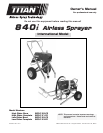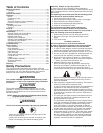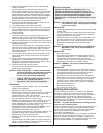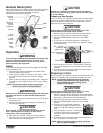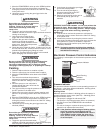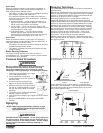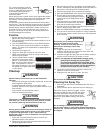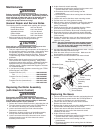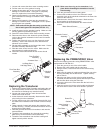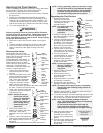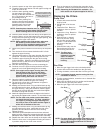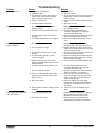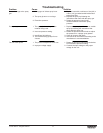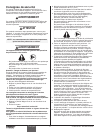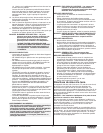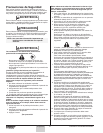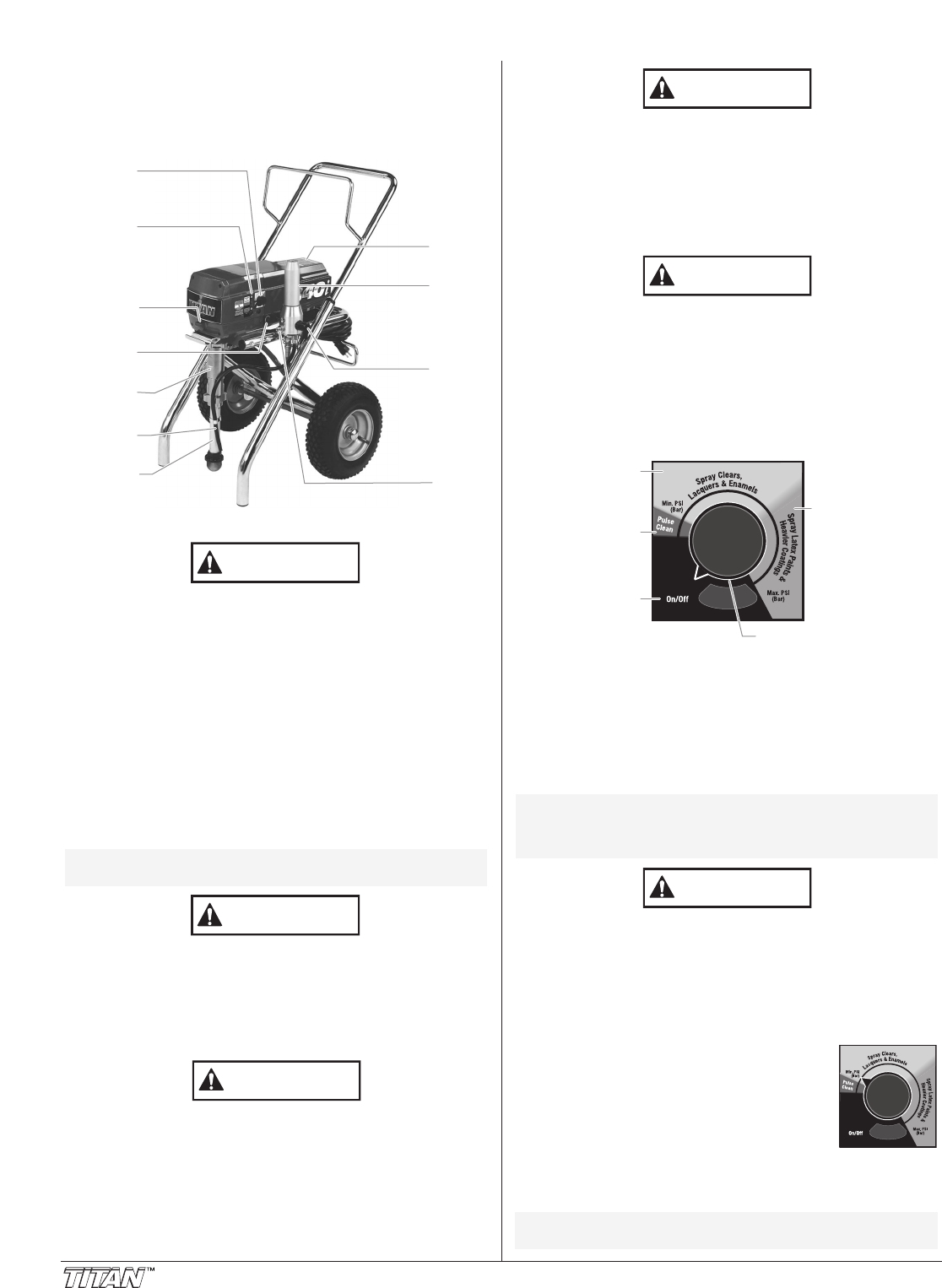
General Description
This airless sprayer is a precision power tool used for spraying
many types of materials. Read and follow this instruction
manual carefully for proper operating instructions,
maintenance, and safety information.
Operation
This equipment produces a fluid stream at extremely high
pressure. Read and understand the warnings in the
Safety Precautions section at the front of this manual
before operating this equipment.
Setup
Perform the following procedure before plugging in the power
cord of an electric unit.
1. Ensure that the siphon tube/siphon set and the return
hose are attached and secure.
2. Using a wrench, attach a minimum of 15m (50’) x 10mm
(1/4”) nylon airless spray hose to the unit. Tighten
securely.
3. Attach an airless spray gun to the spray hose. Using two
wrenches (one on the gun and one on the hose), tighten
securely.
Make sure all airless hoses and spray guns are electrically
grounded and rated for at least 228 bar (3300 psi) fluid
pressure.
4. Make sure the pressure control knob is in its OFF position
in the black zone.
5. Fill the oil cup with 15g (one tablespoon) of piston seal
lubricant (Piston Lube).
Never operate unit for more than ten seconds without
fluid. Operating this unit without fluid will cause
unnecessary wear to the packings.
6. Make sure the electrical service is correct for the unit.
7. Plug the power cord into a properly grounded outlet at
least 7.6m (25’) from the spray area.
CAUTION
WARNING
NOTE: Do not attach the tip to the spray gun yet.
Remove the tip if it is already attached.
WARNING
Return
Hose
Siphon
Tube
Oil Cup
Pressure
Control
Knob
Electronic
Pressure
Control
Indicators
Circuit
Breaker
Fluid
Section
Filter
Motor
PRIME
/
SPRAY
Valve
Outlet
Fitting
4©Titan Tool Inc. All rights reserved.
Always use a minimum 12 gauge, three-wire extension
cord with a grounded plug. Never remove the third prong
or use an adapter.
Preparing a New Sprayer
If this unit is new, it is shipped with test fluid in the fluid section
to prevent corrosion during shipment and storage. This fluid
must be thoroughly cleaned out of the system with mineral
spirits before you begin spraying.
Always keep the trigger lock on the spray gun in the
locked position while preparing the system.
1. Place the siphon tube into a container of mineral spirits.
2. Place the return hose into a metal waste container.
3. Move the PRIME/SPRAY valve down to the PRIME
position.
4. Turn the unit on and set the pressure to minimum by
turning the pressure control knob to the “Min PSI” setting
in the yellow zone.
5. Allow the sprayer to run for 15–30 seconds to flush the
test fluid out through the return hose and into the waste
container.
6. Turn the unit off by moving the pressure control knob to
the OFF position in the black zone.
Preparing to Paint
Before painting, it is important to make sure that the fluid in the
system is compatible with the paint that is going to be used.
Always keep the trigger lock on the spray gun in the
locked position while preparing the system.
1. Place the siphon tube into a container of the appropriate
solvent. Examples of the appropriate solvent are water for
latex paint or mineral spirits for oil-based paints.
2. Place the return hose into a metal waste container.
3. Move the PRIME/SPRAY valve down to the PRIME
position.
4. Turn the unit on and set the pressure to
minimum by turning the pressure control
knob to the “Min PSI” setting in the yellow
zone.
5. Allow the sprayer to run for 15–30 seconds
to flush the old solvent out through the
return hose and into the metal waste
container.
6. Turn the unit off by moving the pressure control knob to
the OFF position in the black zone.
NOTE: Make sure that the spray gun does not have a
tip or tip guard installed.
CAUTION
NOTE: Incompatible fluids and paint may cause the
valves to become stuck closed, which would
require disassembly and cleaning of the
sprayer’s fluid section.
Turbo PulseClean
(red zone)
Min. – 124 bar
(1800 PSI)
(yellow zone)
124 – 228 bar
(1800 – 3300 PSI)
(green zone)
OFF
(black zone)
Pressure Control Knob
CAUTION
CAUTION



